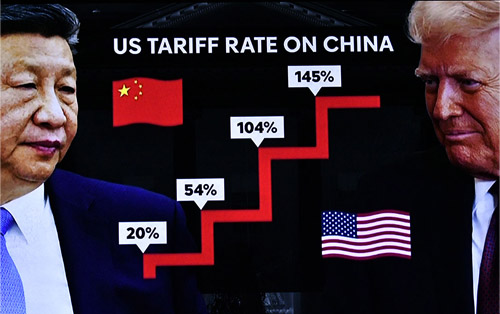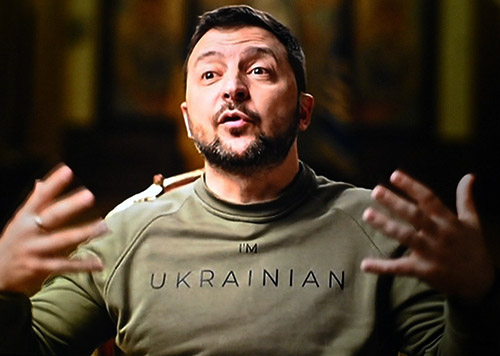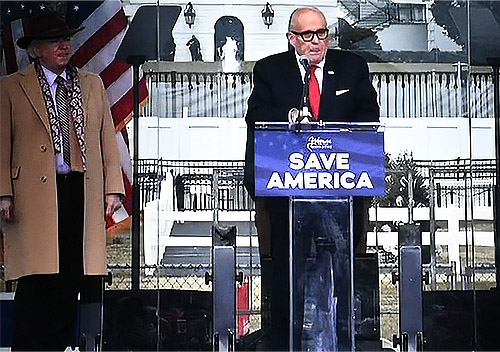The Omen (Has Arrived)

In 2005, Trump cofounded Trump University, a company that sold real estate seminars for up to $35,000. After New York State authorities notified the company that its use of “university” violated state law (as it was not an academic institution), its name was changed to the Trump Entrepreneur Initiative in 2010. In 2013, the State of New York filed a $40 million civil suit against Trump University, alleging that the company made false statements and defrauded consumers. Additionally, two class actions were filed in federal court against Trump and his companies. Internal documents revealed that employees were instructed to use a hard-sell approach, and former employees testified that Trump University had defrauded or lied to its students. Shortly after he won the 2016 presidential election, he agreed to pay a total of $25 million to settle the three cases.
According to a review of state and federal court files conducted by USA Today in 2018, Trump and his businesses had been involved in more than 4,000 state and federal legal actions. While he has not filed for personal bankruptcy, his over-leveraged hotel and casino businesses in Atlantic City and New York filed for Chapter 11 bankruptcy protection six times between 1991 and 2009. They continued to operate while the banks restructured debt and reduced his shares in the properties. During the 1980s, more than 70 banks had lent Trump $4 billion. After his corporate bankruptcies of the early 1990s, most major banks, with the exception of Deutsche Bank, declined to lend to him. After the January 6 Capitol attack, the bank decided not to do business with him or his affiliated company in the future.

After he assumed office, Trump was the subject of increasing Justice Department and congressional scrutiny, with investigations covering his election campaign, transition, and inauguration, actions taken during his presidency, his private businesses, personal taxes, and charitable foundation. There were ten federal criminal investigations, eight state and local investigations, and twelve congressional investigations.
In July 2016, the FBI launched Crossfire Hurricane, an investigation into possible links between Russia and Trump’s 2016 campaign. After Trump fired Comey in May 2017, the FBI opened a second investigation into Trump’s personal and business dealings with Russia. In January 2017, three U.S. intelligence agencies jointly stated with “high confidence” that Russia interfered in the 2016 presidential election to favor Trump. Many suspicious links between Trump associates and Russian officials were discovered. Trump told Russian officials he was unconcerned about Russia’s election interference. Crossfire Hurricane was later transferred to Robert Mueller’s special counsel investigation; the investigation into Trump’s ties to Russia was ended by Deputy Attorney General Rod Rosenstein after he told the FBI that Mueller would pursue the matter. At the request of Rosenstein, the Mueller investigation examined criminal matters “in connection with Russia’s 2016 election interference”. Mueller submitted his final report in March 2019. The report found that Russia did interfere in 2016 to favor Trump and that Trump and his campaign welcomed and encouraged the effort, but that the evidence “did not establish” that Trump campaign members conspired or coordinated with Russia. Trump claimed the report exonerated him despite Mueller writing that it did not. The report also detailed potential obstruction of justice by Trump but “did not draw ultimate conclusions” and left the decision to charge the laws to Congress.
In April 2019, the House Oversight Committee issued subpoenas seeking financial details from Trump’s banks, Deutsche Bank and Capital One, and his accounting firm, Mazars USA. He sued the banks, Mazars, and committee chair Elijah Cummings to prevent the disclosures. In May, two judges ruled that both Mazars and the banks must comply with the subpoenas; Trump’s attorneys appealed.In September 2022, Trump and the committee agreed to a settlement regarding Mazars, and the firm began turning over documents.
Trump was impeached twice by the House of Representatives during his first presidential term, though acquitted by the Senate on both occasions. The first impeachment arose from a whistleblower complaint that in 2019 Trump had pressured Ukrainian president Volodymyr Zelenskyy to investigate Joe and Hunter Biden, in an attempt to gain an advantage in the 2020 presidential election. In December 2019, the House voted to impeach Trump for abuse of power and obstruction of Congress, and the Senate acquitted him in February 2020.
The second impeachment came after the January 6 attack, for which the House charged Trump with incitement of insurrection on January 13, 2021. Trump left office on January 20 and was acquitted on February 13. Seven Republican senators voted for conviction.
Biden won the November 2020 election, receiving 81.3 million votes (51.3 percent) to Trump’s 74.2 million (46.8 percent) and 306 electoral votes to Trump’s 232. The Electoral College formalized Biden’s victory on December 14. Even before the results were known on the morning after the election, Trump declared victory. Days later, when Biden was projected the winner, Trump baselessly alleged election fraud. As part of an effort to overturn the results, Trump and his allies filed many legal challenges to the results, which were rejected by at least 86 judges in both state and federal courts for having no factual or legal basis.
Trump’s allegations were also refuted by state election officials, and the Supreme Court declined to hear a case asking it to overturn the results in four states won by Biden. Trump repeatedly sought help to overturn the results, personally pressuring Republican local and state office-holders, Republican legislators, the Justice Department, and Vice President Pence, urging various actions such as replacing presidential electors, or requesting that Georgia officials “find” votes and announce a “recalculated” result.” In the weeks after the election, Trump withdrew from public activities. He initially blocked government officials from cooperating in Biden’s presidential transition. After three weeks, the administrator of the General Services Administration declared Biden the “apparent winner” of the election, allowing the disbursement of transition resources to his team.

|

Neil Cowley Trio |
LATEST GALLERY IMAGES

Elliot Minor 
Charity Workers Massacred |
|
|





